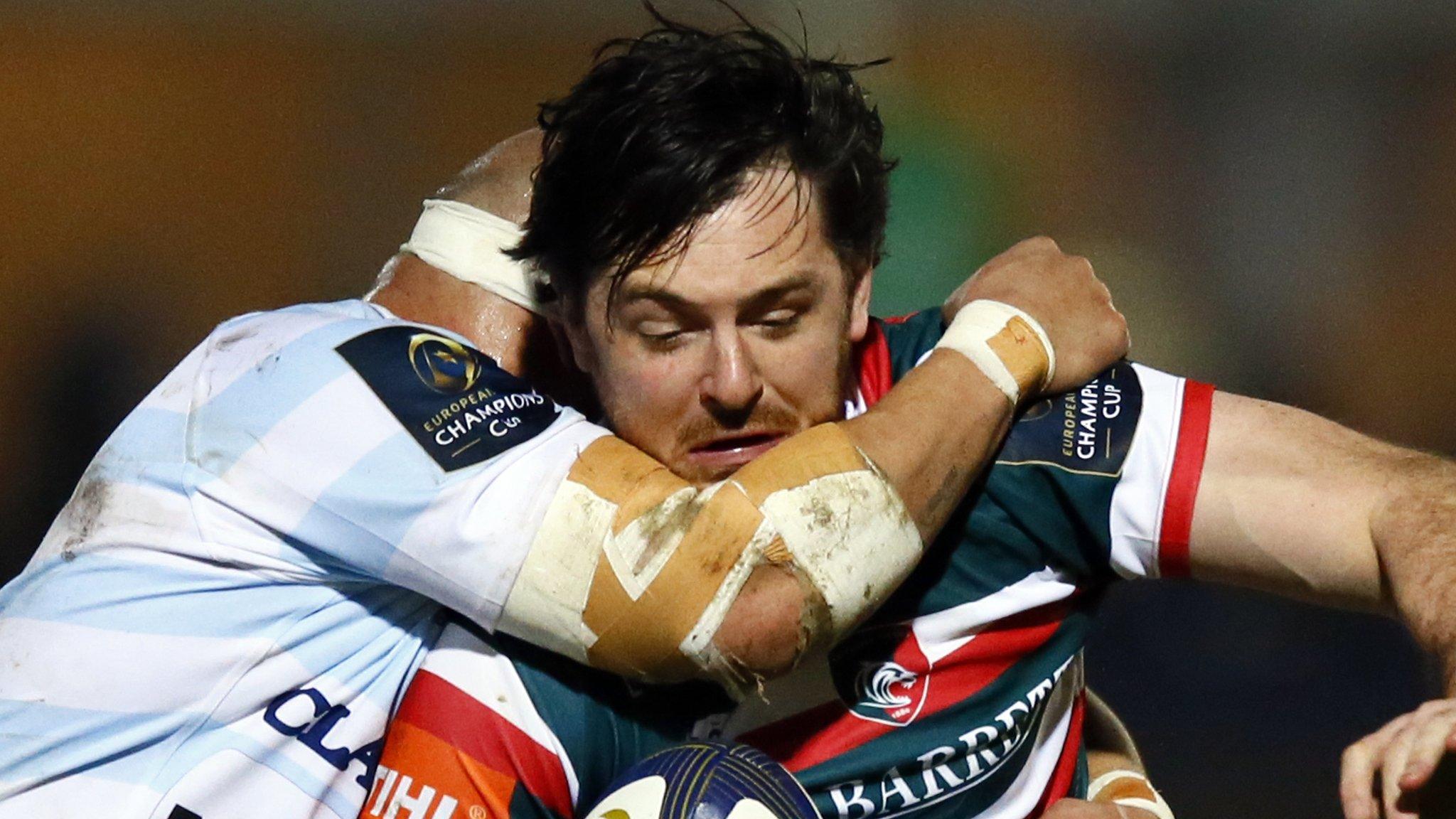Glasgow Warriors need to find clinical edge for European progress
- Published
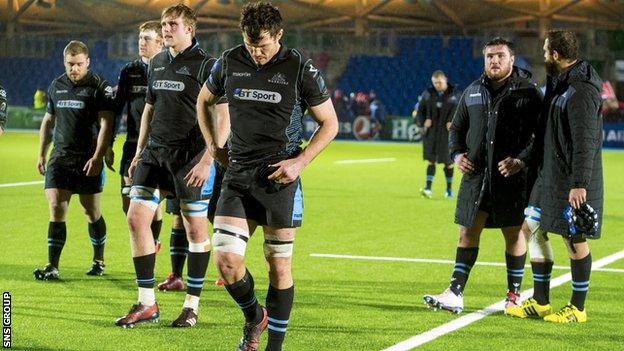
Glasgow have one more chance of progress after losing out at home to group winners Munster
And so it has come to this for Glasgow - a game against Leicester in Welford Road on Saturday that has to be won. A game that is winnable, for sure, but there's no safety net this time, no second chance.
Glasgow have to take four points, and maybe five, from the Tigers to make the last eight of the Champions Cup as one of the best runners-up.
Amid the despond of their 14-12 defeat by Munster at Scotstoun, there was a modicum of cheer. Just as the Glasgow players were removing their strapping in the dressing room, Racing were removing Leicester from Europe.
In Leicester, Glasgow will face a team with nothing left to play for in this competition except pride.
That, of course, might still be a problem. Leicester are not in the business of losing European games at home, be they competitive or dead-rubbers. They have lost one Heineken Cup, or Champions Cup, match at Welford Road since December 2006.
They have no coach at the moment. They've been spanked three times in Europe this season, all away from home. They're mid-table in their domestic league and they have little stability.
But this is Welford Road. It's different there. Beating them at home is still a pretty mean assignment.
This is Glasgow's reality. It need not have been, of course.
There were six minutes left at Scotstoun when Glasgow's moment of truth arrived. Consider what happened up to that point, not just on the night but across the span of games in this group.
Going into Saturday, Munster's defence was the best in Europe and now they're through the other side, it's still the best. If anything, its legend has grown.
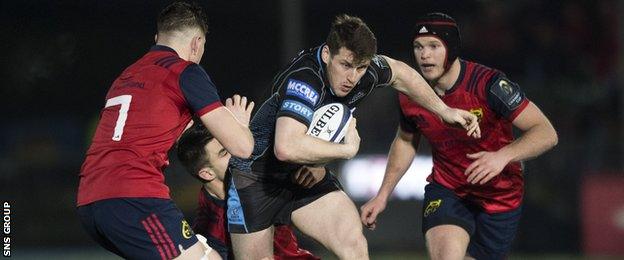
Warriors could find no way through a resolute Munster defence
They had conceded a meagre three tries in four games before facing Glasgow - two of them after they had already built a 31-3 lead against Townsend's side in Limerick and the other when already 32-0 ahead against Racing in Paris.
On Saturday, they were just as steadfast and just as stingy. Glasgow couldn't break them. Munster's line speed, work-rate, organisation and heart was too big.
If they were going to skin this cat, Glasgow were most likely going to have to do it with kicks not tries. That was pretty clear from a long way out. They as good as accepted it when opting to kick penalties from 50m-plus in the first half.
In those closing minutes, they were down in numbers - Stuart Hogg was in the bin - and down on the scoreboard - Francis Saili had just scored - but they had field position and hope. All they needed was clear heads and composure.
Conor Murray - the latest player to be allowed to return to the field after seemingly being knocked-out on the pitch, an episode that European Rugby should be taking a very close look at this week - had his clearance kick blocked down and there Glasgow were, on the front foot in Munster's 22, close enough to get Finn Russell into the pocket for what should have been as straightforward a drop-goal as a game of this mad intensity could allow.
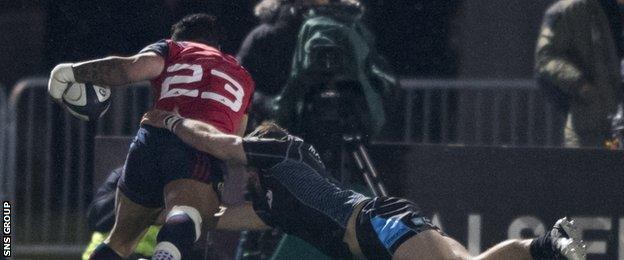
Munster replacement Saili goes over for the game's only try
The drop-goal would have put Glasgow in front. It wouldn't have guaranteed a win but it would have made Munster go back to the well to try to find something in the closing minutes. And there was no guarantee that they'd have found it.
In that moment, though, nobody in the Glasgow team took control. Russell should have been screaming for the ball, but he wasn't. He was too easy to ignore - and ignore him Glasgow did.
They tried to truck it up, passing up a possible three in the doomed pursuit of five, or seven. Indecision - or bad decisions - killed them.
What happened next told you something about the difference between the sides. Glasgow were driven back a yard, then another yard, then a few more yards and a few more on top of that.
Not only did they choke on the chance of a drop-goal, they gave Munster the massive boon of physically shunting them into reverse. The visitors had landed a psychological howitzer.
For all the good stuff Glasgow produced, they just weren't clinical enough or clever enough when they needed to be. They had chances and didn't take them.
Contrast that with Munster's try, their ability to appreciate where the space was after Hogg's exit, their coolness in the execution.
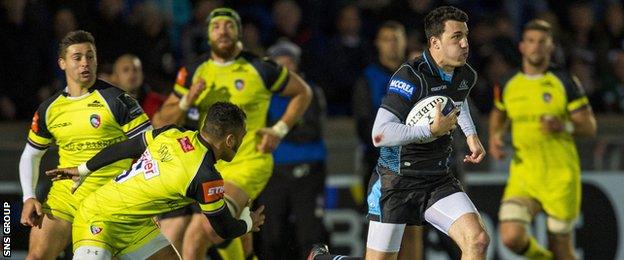
Glasgow thumped Leicester 42-13 at Scotstoun on the opening weekend of the tournament
Keith Earls' work in drawing the cover to him and then finding Saili was exceptional. That was the game-breaker, the moment of class on a night when two fine teams battered each other into the ground.
Munster's progression has been remarkable. They've tapped into some hugely powerful emotions since the death of their coach, Anthony Foley. They're being propelled forward by new players that have found their feet, resurgent players that have found fitness and stand-up warriors like Murray, CJ Stander, Peter O'Mahony and Donnacha Ryan.
Their coaches, Rassie Erasmus, Jacques Nienaber and Jerry Flannery, have taken the team almost back to the future, when Foley, himself, was the spiritual leader of a side that had a belligerence and intelligence that helped them grind out victories on days when you would have bet the house on them being defeated.
If it's right that a team reveals its true self only when its defence is tested to the max, then Munster are a serious contender for this Champions Cup.
Glasgow got close, but nobody remembers those who almost made it. Those who watch Glasgow play will argue that they're a last eight team, that they're good enough to be in among the elite. Perhaps.
They have one more crack at proving it. What they deliver in Leicester will define them.
- Published14 January 2017
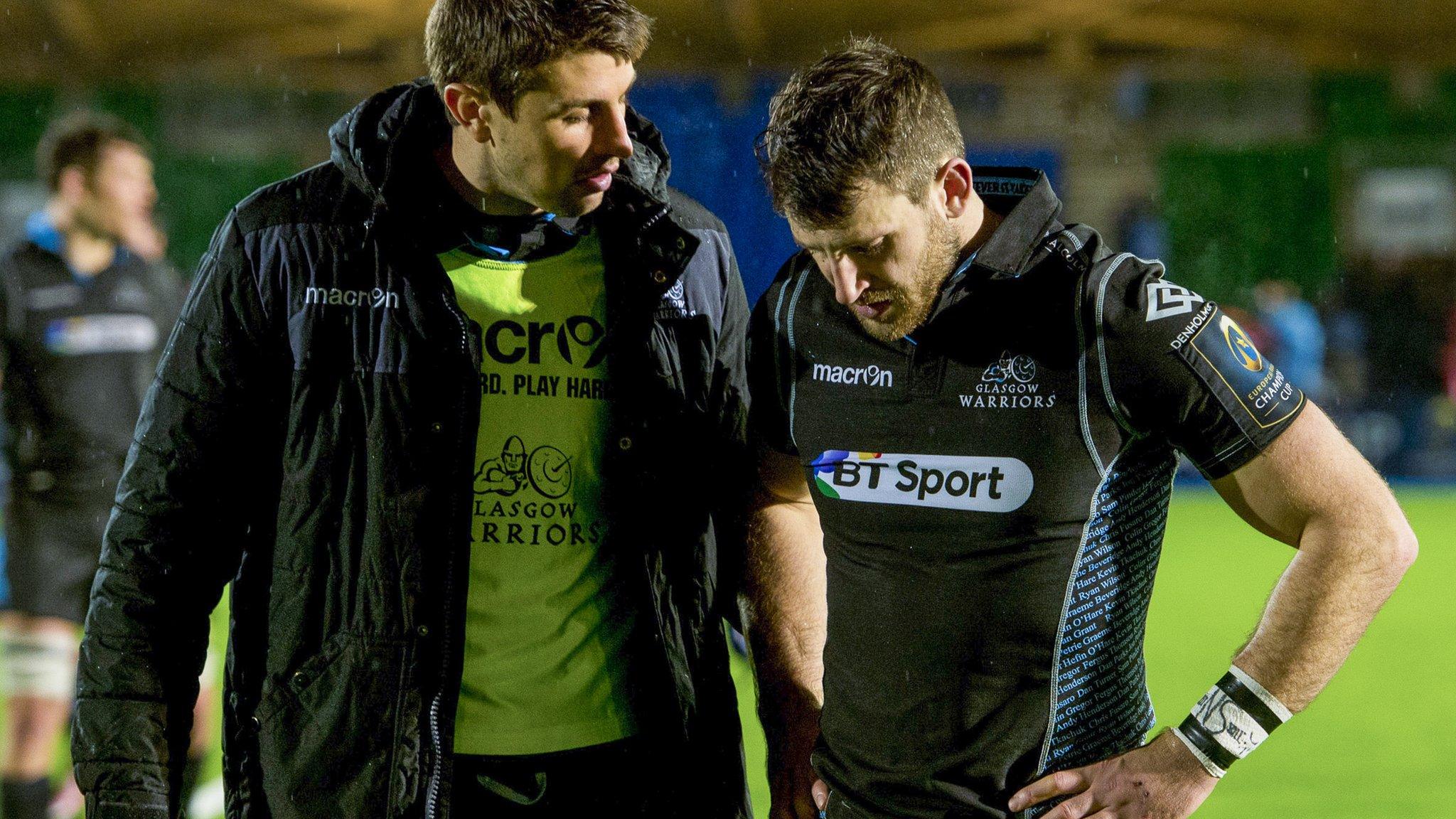
- Published14 January 2017
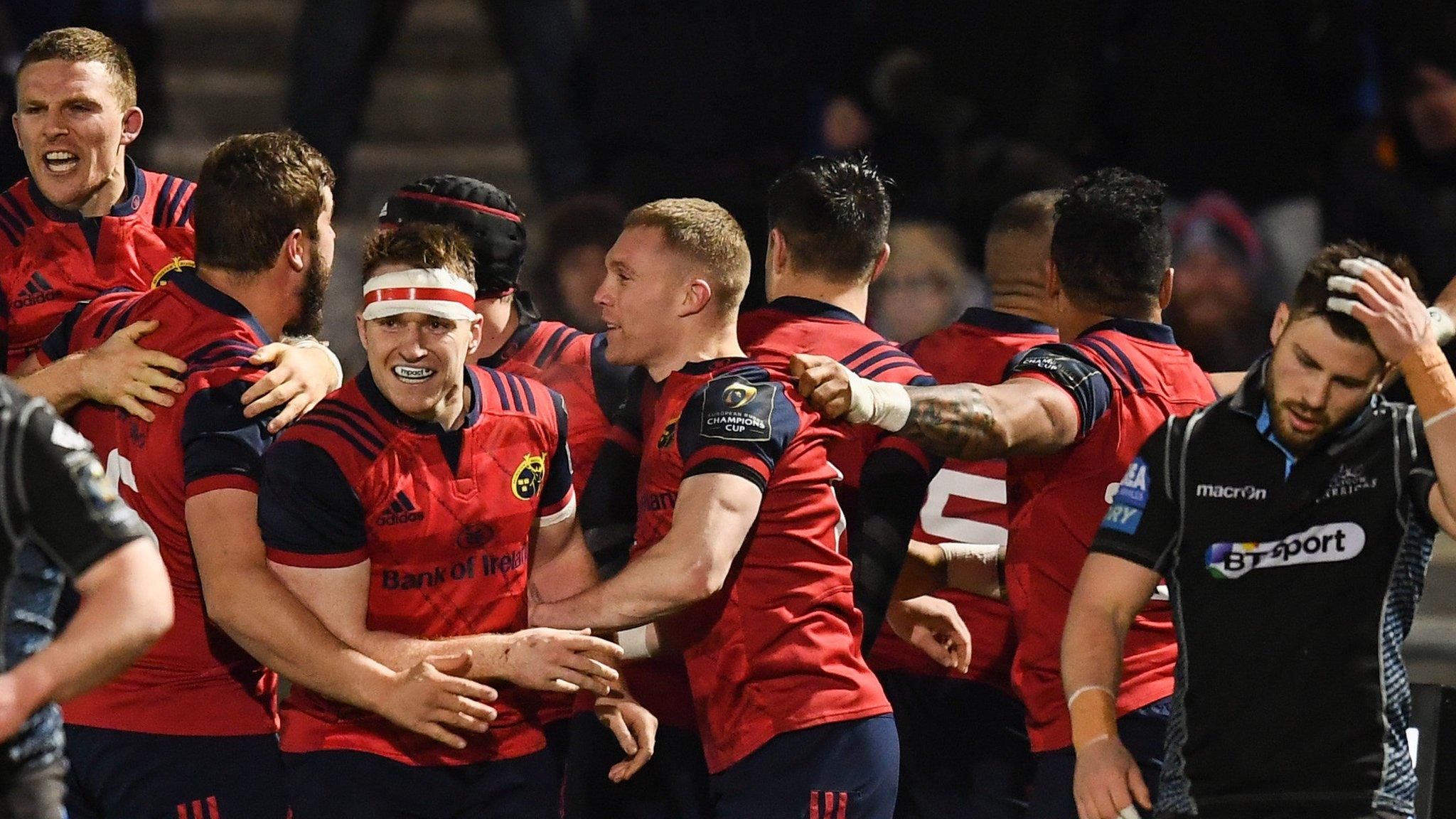
- Published14 January 2017
